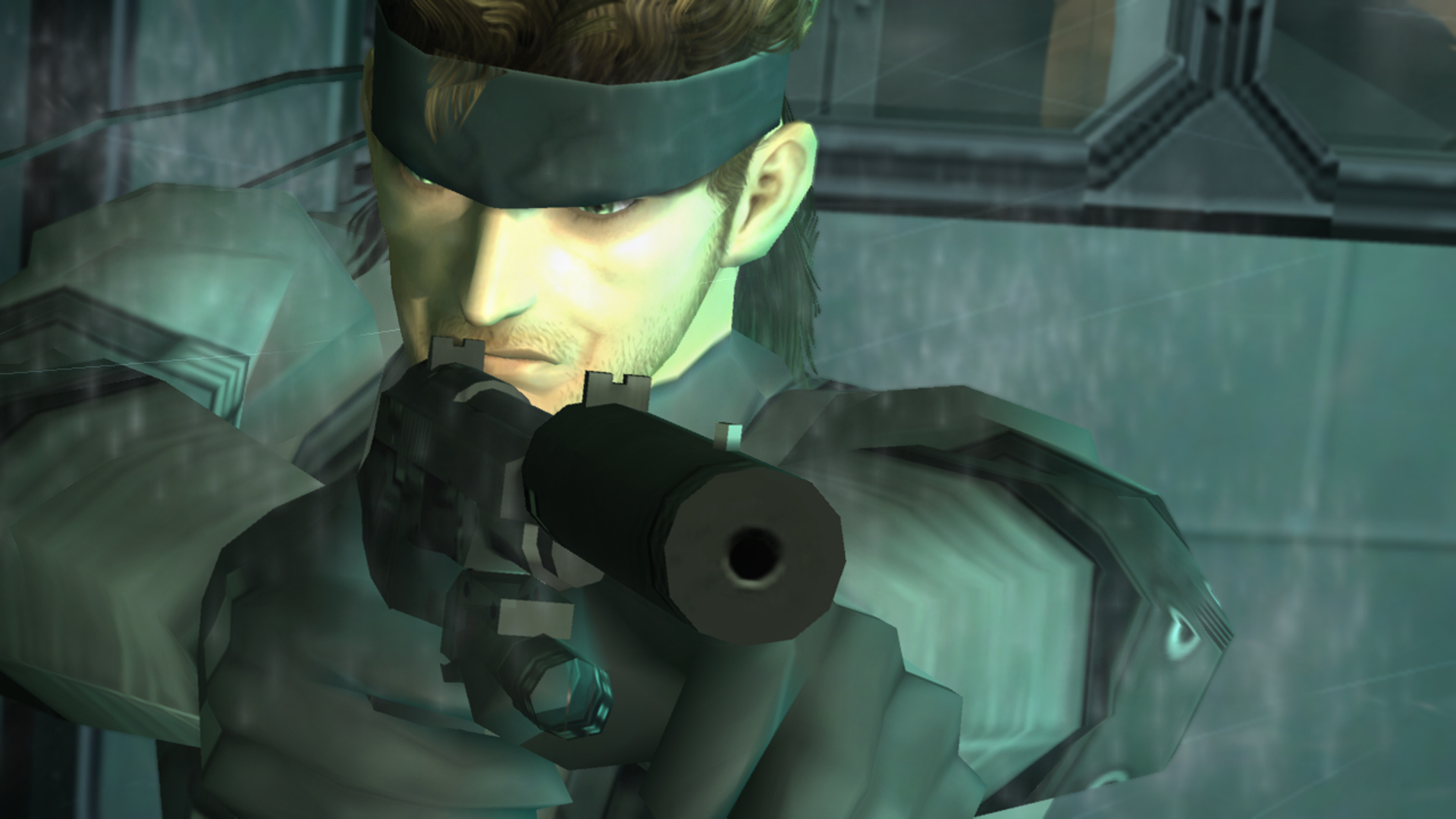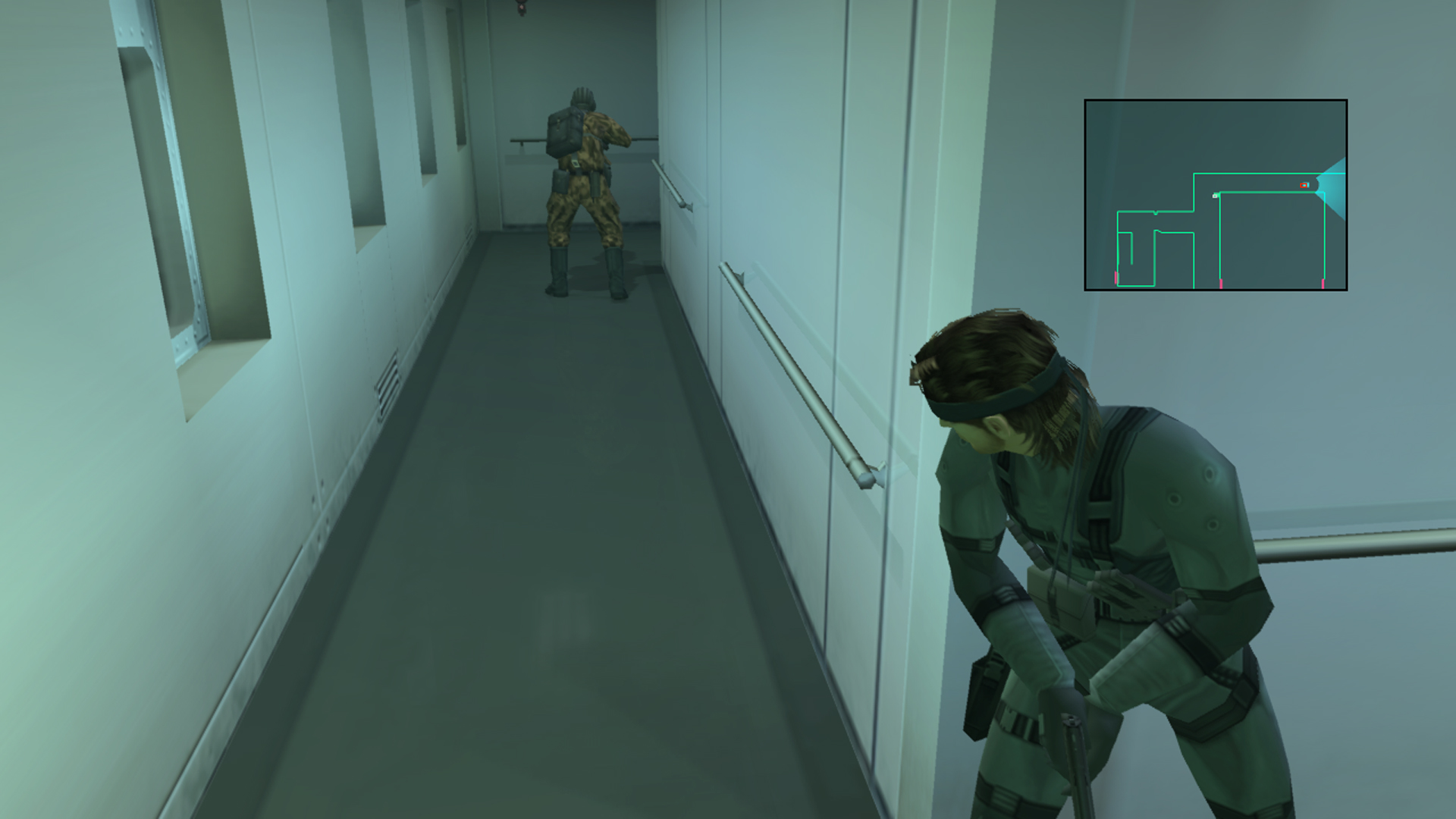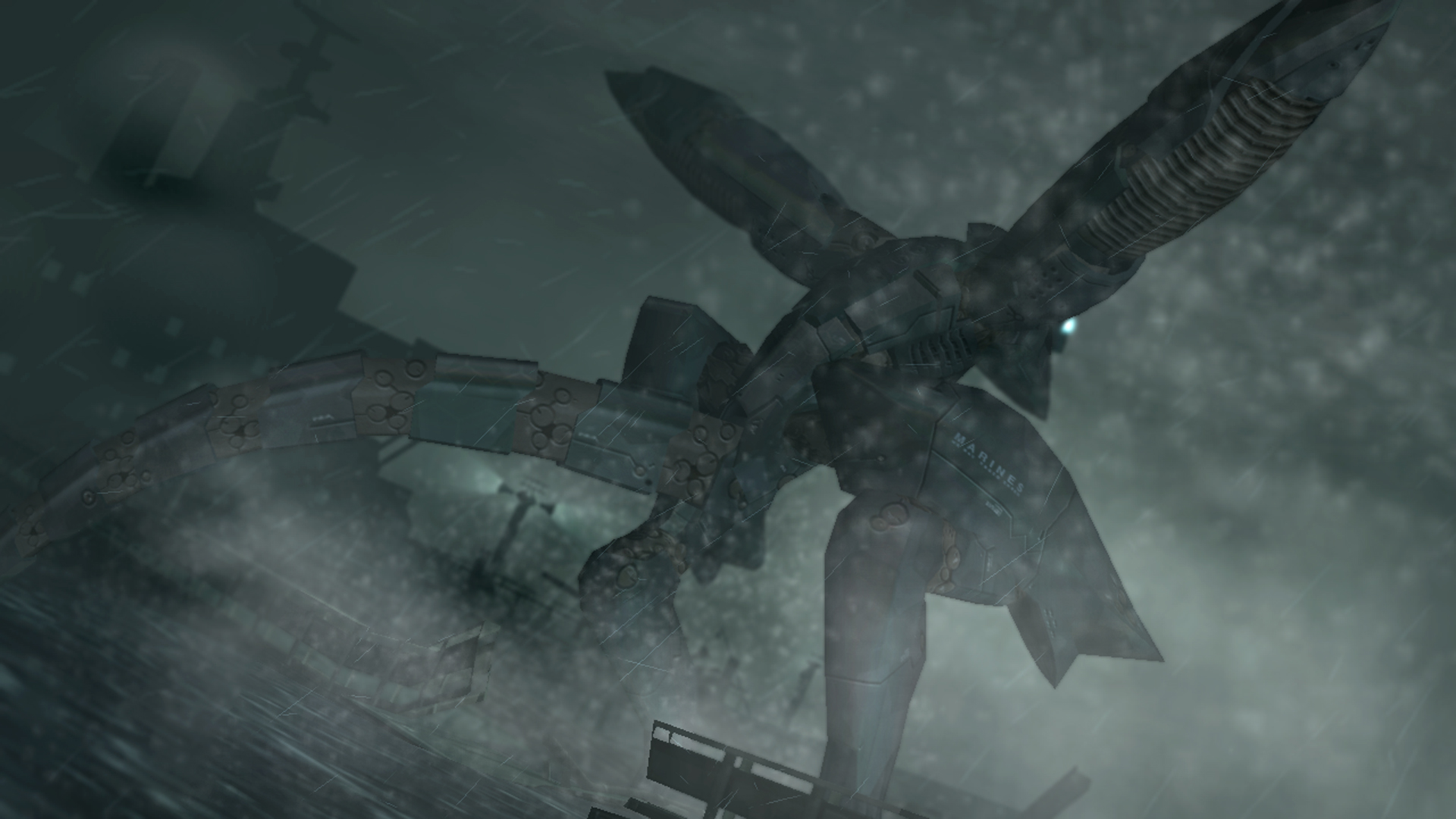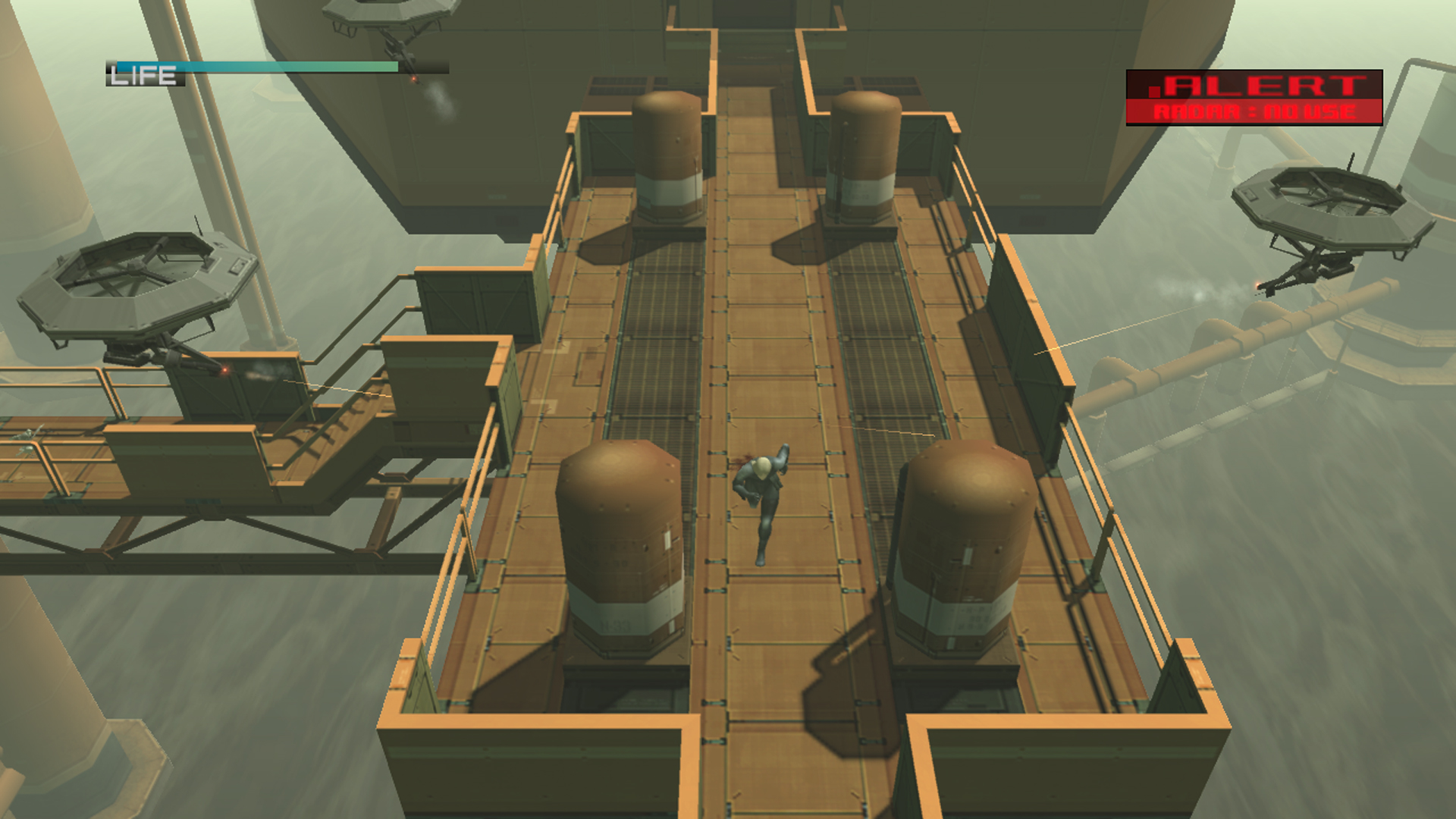
After the release of Metal Gear Solid – perhaps the most critically lauded smash hit to grace the original PlayStation –Japanese game developer Konami decided to chart a brazenly contrary course when it came time to create the sequel.
Rather than make a game that warmly embraced fans of original stealth adventure, Metal Gear Solid 2 was intent on disorientating its audience. The game throws players off balance through careful misdirection, then shatter their preconceptions with a delicately managed campaign of deliberate deception. Suffice to say, Metal Gear Solid 2: Sons of Liberty, which is now available to enjoy on SHIELD TV, is not a paint-by-numbers video game sequel.
Boarding the Hype Train
These (almost aggressive) statements, are not the sort of PR-friendly spiel you’d associate with what was then one of the biggest, most anticipated video game launches ever. First released for PlayStation 2 on November 12, 2001 in North America, MGS2 launched during a time of gnawing political uncertainty, and the country was still reeling from the 9/11 terror attacks – Konami had to actually cut the Twin Towers from game’s New York-set opening mission.
Initially revealed the previous year at the 2000 E3 expo in Los Angeles, the stealth sequel arrived in stores surfing a colossal wave of hype built up over 18 months. Thanks to a series of expertly edited trailers, early noughties gamers bristled with agitated excitement. Games had captured the public consciousness before, yet the release of Solid Snake’s PS2 debut was different.
Even though Rockstar’s now iconic Grand Theft Auto III had launched just a month previously, it was initially regarded as an edgy, experimental curio; not the seminal originator of open-world design it’s recognised as today. In contrast, Metal Gear Solid 2 was immediately heralded as a true game-changer.
Here was the medium’s first Hollywood blockbuster: a virtual popcorn-peddler that shared all the pre-release pomp and bombastic bluster normally associated with CG-heavy action films. Gushing praise quickly followed, the PS2 original earning a stellar 96/100 score on review aggregator Metacritic. Following its success, Metal Gear Solid 2 went on to sell over six-million copies worldwide.

So Long, Snake
What’s particularly impressive, is that Metal Gear Solid 2 achieved this critical and commercial success in spite of the game’s wild subversion of traditional sequel logic.
Defying brand-building wizdom, Metal Gear Solid 2 does not make Solid Snake – the beloved, iconic star of its predecessor – the main playable character. Instead, that honor falls to a new agent, Raiden: an inexperienced operative who represents everything Snake does not. Whimpering and unsure, this strikingly pretty rookie is the polar opposite of the grizzled, perpetually gruff badass MGS fans were used to.
Raiden’s introduction is both a surprise for players and the successful byproduct of a shrewdly kept secret. When Metal Gear Solid 2 finally launched, it marked not only the culmination of three years of painstaking work for Konami, it closed the book on a remarkably successful media ruse.
Through purposeful misdirection and canny trailer editing, the studio managed to keep Raiden’s appearance a complete surprise. This was the ultimate act of subversion. After 18 months of players looking forward to kicking keester with Snake, the game’s creator spectacularly pulled the rug out from both press and fans alike with this shock protagonist.
Yes, Snake does feature in the game’s opening tanker chapter, yet this rainswept infiltration is only a small part of the experience. Indeed, Konami actively mislead players by doctoring key trailers to feature Snake in scenes that would ultimately play out with Raiden in an entirely different location. For three quarters of this espionage adventure, you play as the rookie on a sun-kissed, offshore oil facility.

Digital Deception
Metal Gear Solid 2’s main themes primarily revolve around the creeping digitization that was fast encroaching upon society around the Millennium; be it the meteoric rise of the internet or the use of digital military exercises designed to prepare soldiers for real combat scenarios.
This fundamental mistrust of technology, of mankind handing over power to machines is frequently expressed in the game through Raiden’s lack of real-world experience. When they first meet, Snake sarcastically hisses the FOXHOUND rookie is a, “virtual grunt for the digital age.” In story terms, Raiden was trained on the same VR mini games Metal Gear Solid 2 fans completed in the first Metal Gear Solid – in essence, he’s a near 1:1 cypher of the player.
This technological scepticism eventually manifests itself through a series of jibbering, increasingly nonsensical radio messages. Raiden’s superiors begin to actively question his part in the adventure, continually chastising him for the pointlessness of his role. At one point, Colonel Campbell – who’s soon revealed as a sinister AI program – tries to goad players into switching off their PS2s so that they can go and get some fresh air.
Here, the game’s creators are essentially poking gamers with a large stick. They are actively undermining the player’s sense of importance, instead of traditional game design that dictates every action must be terribly vital. It’s a meta, self-referential story beat entirely in keeping with the series best fourth wall-breaking moments – such as Metal Gear Solid 1 encouraging you to check the back of the game’s box to unearth a radio frequency.

Contrasting Fortunes
Metal Gear Solid 2 is a game of contrasts. Its brightly lit Big Shell oil platform greets players with hazy sunsets, subverting wider genre tropes that stealth games must take place in dark, dingy settings. Though dialogue is occasionally over-the-top, weighty themes of legacy and information control permeate every exchange. Upon release, its $10-million budget was gargantuan, yet it has the sensibilities of a deeply personal project; one made to scratch its creator’s very specific itch to subvert expectation.
Above all, Metal Gear Solid 2 is a game designed to perplex, unsettle and make players questions their actions at every turn. Even 16 years on, it remains the most startling, subversive sequel of all time.
For the first time ever on Android, Konami’s seminal stealth sequel, Metal Gear Solid 2: Sons of Liberty, is now available to download. Get it now on Google Play exclusively for NVIDIA’s Tegra X1-powered entertainment platform, SHIELD TV.
Sponsored by Nvidia
The biggest gaming news, reviews and hardware deals
Keep up to date with the most important stories and the best deals, as picked by the PC Gamer team.

